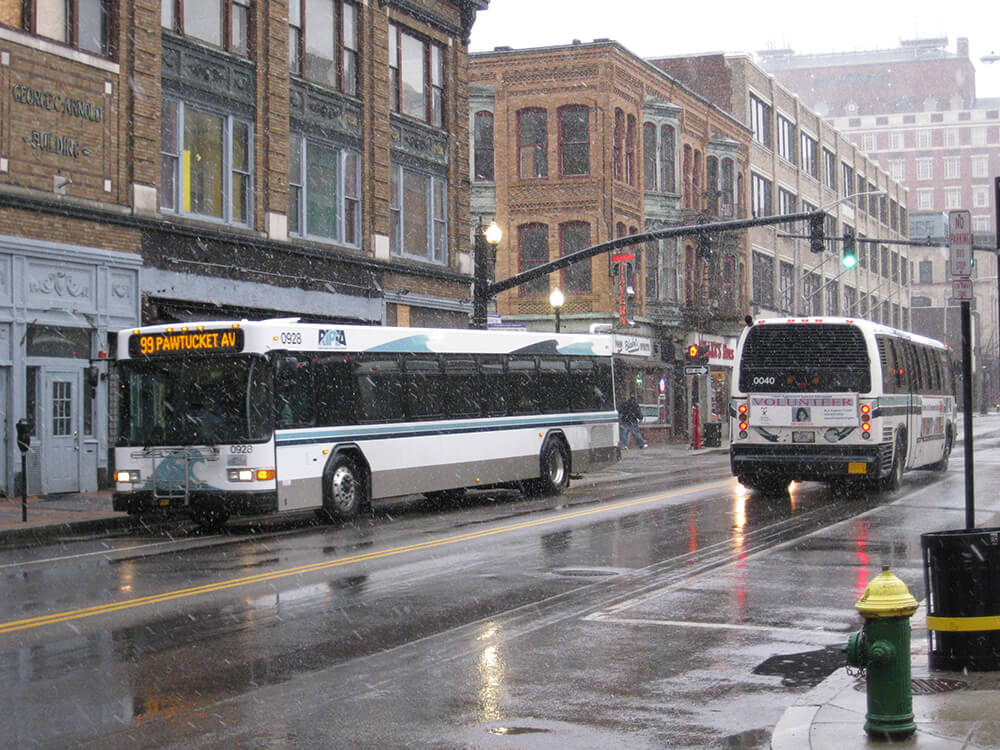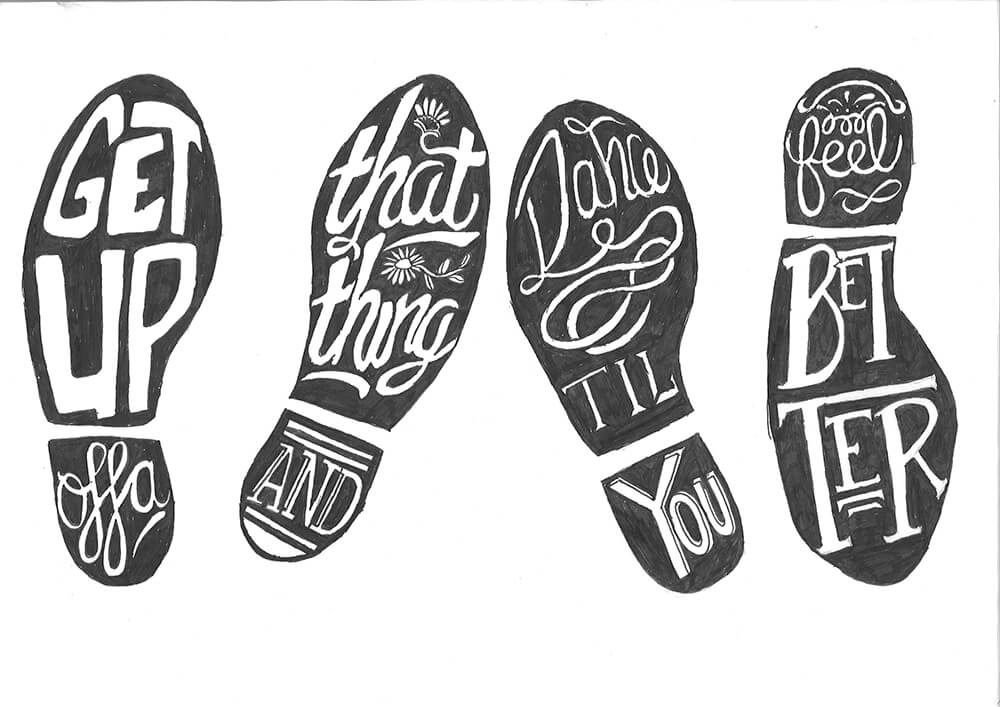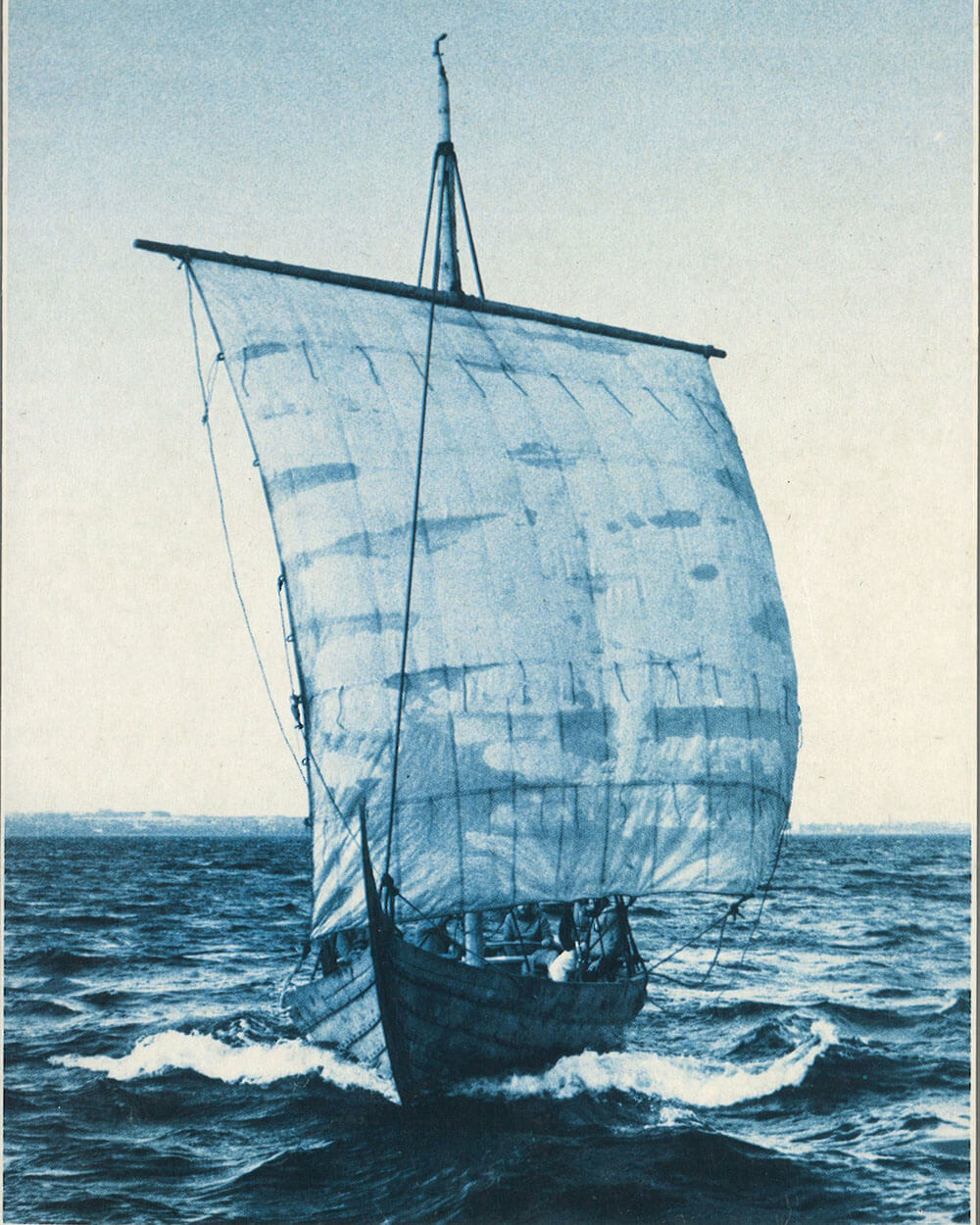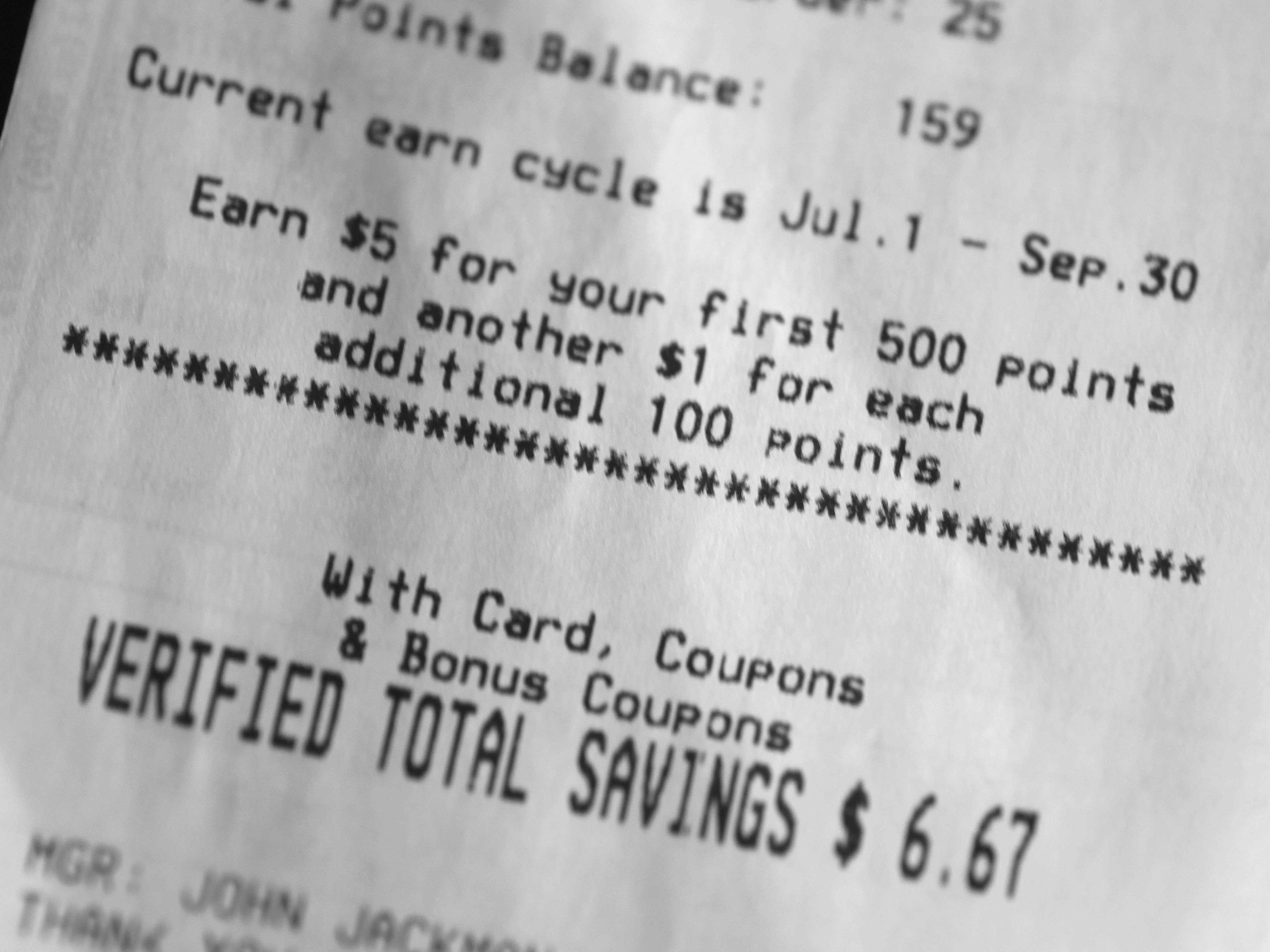Tag: Marisa DelFarno ’18
Tales From The RIPTA
by The Cowl Editor on April 26, 2018
Portfolio

by Marisa DelFarno ’18
*based on real encounters
There was once a man who looked like your average man—blue jeans and a grey sweatshirt—but he was ridden with the mouth of a sailor, or a wannabe rebellious 13-year-old, despite little children being seated right near him. He was on the phone, and whoever he was on the other line with was really pushing his buttons because he was sprinkling out every swear word in the book. Every word. For at least 5 minutes straight. I guess no other words sufficed.
* * *
He sat across from me, his feet stretched out in the narrow, dusty aisle. He wore old sandals that were completely demolished. I was shocked he was able to walk in them considering their condition. However, seated within his sandals were probably the dirtiest feet I have ever seen. Long, grime ridden toenails, parading themselves openingly in the middle of the aisle. They extended approximately an inch and a half to two inches past his nail beds, fitting more to the definition of claws than nails. Much to my bewilderment, his nails were so long that they were curving, digging slightly into his skin.
I did not have lunch that day.
* * *
The guy with the claws was not the only person lacking any attention to hygiene. I found myself sitting behind a young, high school-aged kid with a canary yellow mohawk, reeking with the distinct smell of body odor and uh…urine. The noxious combination of the two worst smells in the universe was so bad but I felt like it would be very obvious and rude if I moved seats. I instead held my nose in my sleeve for the whole duration of the bus ride.
* * *
There were two men, sitting side by side. One distinctly looked like he was in his seventies, while the other looked exactly like the younger version of him. They both wore the same exact red skullcap, the same charcoal colored peacoat, and the same thick, Ray- Ban framed glasses. They looked like twins, but you could easily tell that one was much older than the other. When I first saw them, I wondered if their matching outfits were merely coincidental, but then I encountered them a second time, and you’ve guessed it: they were again wearing the same exact outfit.
* * *
He trudged onto the bus, holding his black blazer together with both hands. He swiftly paid and plopped himself on one of the couch seats across from me. Upon sitting down, he let it all out, his bare chest and gut. He had no shirt underneath his blazer. Just a layer of curled chest hair. Apparently, he was exempted from the “no shirt, no shoes, no service” policy, or the driver just did not notice or care. The lady sitting next to me, equally as dumbfounded as me, whispered in my ear, “Nothing surprises me on the RIPTA anymore.” I could not agree more.
* * *
She was roaring for all ears to hear. “First, they have chips on our cards. Next, the government is going to have chips in people’s heads! You watch. First the credit cards, then our brains!”
At first, I thought she was joking, but she kept repeating the statement as a means to emphasize, with her wide eyes conveying a sense of seriousness. She was not joking at all, nor was the man she was talking to laughing, but instead nodding his head in agreement. I still do not know if he was nodding his head out of fear, or if he actually personally agreed with her.
* * *
I snaked my way through the crowd and stepped into the line, waiting until it evened itself through the little doors of the bus.
Due to the amount of people there, it was taking a while. I looked at the bus itself and realized there was an ad for a local sleazy lawyer nestled on the side of it, with a humorous, Sharpie-drawn mustache. I chuckled to myself, but I looked above the ad and my expression completely changed. I noticed my own reflection cast by the bus window.
My hair, probably due to the wind, was an absolute mess. It was in knots, all frizzy and crazy like a witch’s hair. I was a bit taken back and almost horrified, but that was not the only thing I noticed. My face also had weather induced rosacea, red as a ripe tomato. And, there was more. My battered shoes were untied, waiting for my inevitable fall. My socks were also mismatched. Well, that is what you get when you forget to do laundry. And, my shirt had a stain on it, a residue of today’s lunch, on the one day when I decided to wear white.
And then, the epiphany hit me like one-thousand bullets. I have become one of them.
White-Out
by The Cowl Editor on April 12, 2018
Portfolio

by Marisa DelFarno ’18
Three towering walls wrap around Henry. The dull, plain looking bricks laid out around him resemble grey fish scales. The fourth wall consists of thick rust-rotted bars lined up high in unison. The room is as cold as an icebox. A single dim light bulb flickers above. No windows or daylight can be found.
Henry defeatedly bows his head down and whispers, “Death row.”
“Henry, look at me. Look at me.” Doug pulls Henry’s chin up. “I am going to get you out of here. I promise.”
“But you’re an….” Henry sighs. “I don’t know the word.”
“Lawyer?”
“Yeah,” Henry says. “I didn’t know people like you still existed.”
“We still do. Though there are less of us now since the White-Out Movement. It is much harder to persuade people now when your vocabulary is stuck at 20,000 words—less than what the average 12-year-old used to know.”
Henry turns his head away from Doug and mutters, “My limit is now at 2,000.”
“I know. I know. They shouldn’t have reduced it. The death penalty is enough,” Doug says.
“It doesn’t matter. I am already a dead man,” Henry coldly replies.
“Don’t you dare say that. I am going to help you. I am going to the judge’s chambers this afternoon. He mentioned an alternative,” Doug responds.
Henry shakes his head. “No.”
“Why?”
“There is no use. What’s worse? Death or losing your words? Do you know what this…thing is?”
“The alternative? Not yet. I am going to find out later.”
Henry spins his eyes away from him. Doug lights a cigarette. He takes a drag before looking up at Henry. His dark brown eyes pierce through Henry’s soul.
“You did do it, right?” Doug mutters with his cigarette dangling from his mouth.
“Yes, I was trying to…I can’t think of the word,” Henry says, weighing down his shoulders in defeat.
“Read?”
“Yes, they found me with it.”
Doug pauses for a moment. “How on Earth did you get the book?”
“I hid it years ago before all this happened,” Henry replies.
“And they said the book you were found with was…Fahrenheit 451?” Doug shyly smiles.
Henry lightly chuckles to himself. “Isn’t it…funny?”
“I think ironic is the word you are looking for,” Doug says. “Why that book? Out of all the books in the world?”
“Because like ‘that word’ you said. And also it was my favorite, and I couldn’t leave it so I hid it.” Henry points to the cold concrete floor stretched below him. “I hid it under the…ground of my house. Ten feet under.”
Doug scratches his chin. “Hmm I wonder how many other books are hidden?”
“Does it matter? Our vocab is getting smaller and smaller. We can’t even…” Henry lets silence finish his sentence.
Doug deeply inhales. “I know. Those nuts have ruined everything.”
Henry lies back on the thin mattress on his cot and stares at the pale, tiled ceiling. “How did it get this far?”
“You know. The White-Out Movement, anti-intellectualism, so on.”
Henry lifts his back up from the metal cot. “Wait. You still have that word?”
“Anti-intellectualism? Of course. It is a movement they are proud of. Why get rid of the word?”
Henry lies back down. “Ugh, they had to create that…that…that…thing and make us all dumb,” he says.
“I know. Remember. Never doubt an army of dumbasses. They’re loose cannons.”
Henry takes a long pause. “People are dumb.”
Doug scoffs. “Now we are all dumb…I didn’t know they could continue to limit your vocab. When did yours go all the way down to 2,000?”
Henry extends his arms out with opened palms. “When they put me here.”
Doug sighs. “They never tell me anything until after the fact.”
Their conversation withers into silence. Doug starts to pace around the compact cell. “We need a defense.”
“It is too late,” Henry replies.
“I’m going to talk to the judge. Somehow, he might understand.”
Henry shakes his head defiantly. “He has no say in it. They do.”
Doug doesn’t know how to respond. He lights another cigarette before shattering the silence between them.
“Henry, you are a lot like me. We were both educated before they stole our words. I understand your pain. I miss speaking like an adult. I miss reading. I miss holding a book. And I am going to continue to defend you from those morons. I am willing to lie for you.”
Henry wrinkles his forehead in disbelief. “How?”
“I would say that you simply found the book. It wasn’t yours to begin with. They can’t prove that it was yours.”
“That is just…dumb.”
Doug rubs his forehead.“I don’t know what to say. They burned all the books years ago,” he sighs. “I guess I am stuck telling the judge the truth, but I will make him understand why you were reading. He is—or was—a so-called ‘intellectual’ like us. Maybe he will forgive you. Remember, he mentioned an alternative to the death penalty. Any alternative means living.”
“Doug, just leave. You’re no help. I just…don’t want to talk about it anymore.” Henry turns aside on his cot with his back facing Doug.
Doug slightly opens his mouth to say something, but instead, decides to refrain from speaking. He keeps his feet planted to the solid concrete floor, and stares at Henry before the guards escort him out of Henry’s cell.
~~~
“Henry?” Doug says quietly.
Henry looks up from the shaded corner of his cell. He is crouched down on the grimey ground, holding his knees to his chest, convulsing like a leaf in autumn.
“Henry,” he sniffles. “Henry, I am so sorry.”
Henry’s baggy blue eyes stare at him, his pupils dilated with fear.
“If I could, I would continue to fight. I am a horrible, horrible lawyer….I am sorry. When I asked about the alternative, the judge promised you would live, but your vocab would have to be permanently limited. I thought he meant the limit it was at, 2,000. That is what he suggested. That is what I later told you before you accepted the alternative.” his voice shakes. “Henry, I am so sorry.” He pauses. “I didn’t know the judge would have them erase your entire vocabulary…Henry do you understand me? Do…do you know what I’m saying?”
Tears start to gently roll down Doug’s cheek. “Henry. Speak to me.”
Henry does not respond.
Apotheosis
by The Cowl Editor on March 1, 2018
Poetry

by Marisa DelFarno ’18
His name was Jones,
and the whole bus was his soapbox.
Any regular on 21 knew about Jones;
his rep for being tossed out onto the pavement,
and his volcanically loud
voice,
while the mice of the bus,
myself included,
judged him in our collective silence.
He hid himself in the rear of the bus,
deep past the rows of sticky seats,
and his voice
held in by the foggy, closed windows,
and the metallic shell of the bus.
Till this day,
I don’t know what Jones exactly looked like.
He was more of an apparition;
a ghost with a deep, gravelly, and rambunctious voice.
He talked
and
talked
but no one dared to join his conversation.
He only talked into the smoggy dirty air
enveloped in the bus.
One day,
he claimed to be a relative of James Brown,
and from Raleigh, “just like James Brown.”
A bystander fact-checked him,
saying Brown was from South Carolina.
Jones retorted back, “No, I am from Raleigh,
just like James Brown.”
We ignored him,
dismissed him as a loon.
And then,
he modulated his usual baritone voice
to a high pitched tenor real fast and
started to belt out
Get up offa that thing,
and shake till you feel better,
repeatedly,
and hitting every note,
perfectly.
I sharply turned my head
to see if the real deal had materialized.
But sullen-faced strangers concealed him,
looking forward
at me,
at the front of the bus,
as they sat in their silence.
Turn around.
Witness
a legend.
Don’t Fear The Reaper
by The Cowl Editor on February 15, 2018
Portfolio

by Marisa DelFarno ’18
There is nowhere to hide from death. This is the administration’s motto.
How did this become their motto? Short answer—overpopulation. Every three years, the population kept creeping over another billion. Another three years would go by, and another billion or so people would find an uncomfortable, claustrophobic home on Earth. When our population was inching its way to nearly 20 billion, people got scared, food got scarce, land got congested, and the administration felt that something had to be implemented. So they decided to play God.
It was about 100 years ago when the administration first announced that everyone would be assigned an expiration date. The date cannot be private or hidden. They believed it was best to plaster the date onto people’s foreheads. Why? Because you cannot hide it nor can you hide from it.
You do not receive the expiration date when you are born. Instead, you have to wait until you are 16 years-old to get the expiration date. That is when people get stamped like how cattle get tagged. By now, it has become some kind of coming-of-age event like someone’s Confirmation or Bar Mitzvah. On your 16th birthday, you have to report to the administration’s local branch first thing in the morning, 9 a.m. to be precise, and sit on some little chair, veiled by a thin, gauzy curtain, and get your death date confirmed on your forehead. If you refuse to report there on your birthday, they will find you.
The phenomenon with the stamps is not global. The administration argue that the countries that do not enforce the stamps are in “calamitous disrepair,” with no agriculture, only loads of people and collapsed infrastructure. The whole song and dance. They further justify that we live in a sunny utopia. Then why do many of us live in constant fear of the reapers?
Reapers is the slang word for the administration, because you know, the whole death-knocking-on-your door joke. It is a little silly and too tongue-in-cheek, but it somehow found a way to steep itself into our everyday language. But the reaper’s arrival is still completely unforeseen since the stamp only divulges the month and day, not the year of your death.
The date is October 11, my 16th birthday. I am in a line, about to find out what date will permanently be known as my death date. The line I find myself standing in is pretty humble in size. There are only about two hundred of us here. Some states have lines consisting of over a thousand or more 16-year-olds. The lines vary depending on where you live, and the size of your state. The wait shouldn’t be too long. The procedure takes a minute per person, though there is unfortunately only one lady administering it today.
As the clock drags, I eventually find only two boys remaining in front of me. They have the same exact cinnamon hair color and green eyes. Twins, I assume.
“I heard that they now make the date close to your birthday, or even on your birthday, and that is when they get you. They wipe you out immediately!” one of the boys says.
“Nonsense. Dad knows someone that has the day after his birthday pressed on his forehead and that man is now 50 years-old!”
“I said they now do it. Also, how come last year that sophomore boy never made it back to class after his birthday weekend? He hasn’t been seen since.”
“Eh…uh…he’s probably just the ultimate prankster,” the boy says shakingly.
“I guess he is Andy Kaufman then,” his twin scoffs.
“Next!” a worn, smoker’s voice calls out behind the white curtain.
One of the twins steps towards the curtain.
“Don’t flinch! They will botch it!” his brother calls out.
The other twin responds by rolling his eyes and vanishes behind the curtain. A minute or so passes and the twin exits the curtain, revealing a redden forehead with the date 10/25 newly etched on.
“Huh,” his brother catatonically responds before going behind the curtain himself.
I wait patiently for a minute before I hear the lady screech, “Next!” from the curtain.
I tiptoe my way over there, knowing my face will never look the same again. I unhurriedly tug the curtain out of my way.
Fluorescent lights soils the area with brightness like someone is viciously burning an ant with a magnifying glass. The station consists of a stool, a folded table with alcohol pads and a rectangular device laying on it, and a lady who fully materializes everyone’s vision of a reaper. Her eyes are so sunken in and blurred with dark circles that they resemble the hollow sockets of a skull. Her twiggy arms poke out of her baggy, pastel-colored smock. The bones under the sheer, veiny skin of her hands flex as she grabs one of the alcohol pads. She irons my forehead with the frigid pad, and promptly peels it off before she snatches the rectangular device.
“Look up,” she coughs.
I crane my neck up and before I know it, the strange rectangular device is cemented to my forehead, and a sudden flash of white light blinds me before the pain of 10 million needles rips through my forehead. The lady harshly removes it like Velcro. The procedure took a mere five seconds, but the pain continues to echo. I don’t even know if I have any skin remaining on my forehead.
“Don’t rub your forehead!” she snaps. “You will smudge it, and we don’t do redoes!”
“May I ask what date is on my forehead?” I shyly say.
“Pssh, like you are never going to see a mirror again.” She pauses. “Remember. Don’t touch it!” she says in a school teacher’s voice.
I let my arms stick to my sides and force myself to refrain from picking at my forehead. Smudged forehead stamps are never pretty.
The lady tugs at the curtain and barks, “Next!”
I get up from the rickety stool and tear the curtain out of my way. I wonder if there is a bathroom somewhere so I can get a glimpse of the date forever etched on my forehead, but knowing the administration, they probably have no public bathrooms.
It is now a mission to exit the labyrinth so I can run home and peek at the first mirror I can find. The elevators are too slow and always mobbed, so I stick to the stairs—all 10 flights. My desire to dash home is fierce because reaching the front entrance took all of a millisecond.
As I am about to step out the door, I realize that the gleaming, freshly wiped down glass has a faint reflection. I drop my hand from the doorknob, and peer a little closer. The reflection is barely discernible, but the markings on my forehead are so bold that you can even see it through a foggy mirror. I squint. A boldface 11 is pressed on my forehead, separated with a dash and followed by 01. I read the date backwards and it hits me. The date is October 11.
Three Line Third Wheel Stories
by The Cowl Editor on February 8, 2018
Features

His voice is all I can hear,
And she calls him “dear.”
Can I please just disappear?
—Marisa DelFarno ’18
Walking out of my dorm, my two friends see me and invite me to come to the dining hall.
I find their booth, and they are both sitting on the same side, already done eating.
I sit down and eat in silence, as they feast on each other with their eyes.
—Connor Zimmerman ’20
I love my two best friends, we do almost everything together.
We three drink, sleep, eat, play, and laugh all day,
Sometimes they make it weird and kiss and hold hands, but I don’t mind.
—Jay Willett ’20
It was kind of like the third person on the sidewalk
But worse…
Because I hear one of them whisper, “how do we get rid of her?”
—Sam Pellman ’20
Cento
by The Cowl Editor on February 1, 2018
Poetry

by Marisa DelFarno ’18
I was much further out than
a lost star’s way.
I was trotting along
a route obscure.
Boundless and
bare. Bathe myself
in strangeness,
under the surge of
the blue veritable
ocean. Marvels of form
and gravity. The moving
waters, the enormous
avenues, going on and
on—sinkin’ deeper,
deeper. Taken root like
a stone. There, in
a black-blue vault, I
could no longer
voyage—closed and
done. And if I
become once more
the old traveler—I
learn by going. I
no longer felt myself
guided by a crumb
of the wrong
winds.
A Day in the Life
by The Cowl Editor on January 18, 2018
Portfolio

by Marisa DelFarno ’18
We have all had an unfortunate encounter with one of those disgruntled retail employees. You know, the one that does the transaction swiftly and wordlessly with zero eye contact. The one that rolls their eyes the second you mention that you have a coupon. The one that makes the unintelligible zombie grunt when you ask if a product is on sale. The one whose agenda is to shoo you out the door as fast as possible. Well, this is a testimony proclaiming why we retail employees are the most dispirited creatures to ever roam the face of the Earth.
We weren’t always the Morlocks of society. I like to think of most of us as just normal people trying to get by. But after having to deal with certain customers over a certain period of time, it does truly shape a smiley, happy-go-lucky, wide-eyed Peggy Sue into the most miserable brute there is. Here is Exhibit A of why I am affiliated with the class of nasty, disgruntled employees. Here is my retail horror story.
It is my first work shift of 2018. How exciting. I glide through the automatic doors, holding my coffee like I’m Lady Liberty holding her torch. My work shirt is still wrinkled from my last shift, my matted hair resembles a Brillo Pad, and dark circles shadow my eyes. I am tired—a zombie in essence—but I am somehow ready to immerse myself in labor for the next seven daunting hours. I make eye contact with my co-worker, Lauren, whose baggy eyes immediately light up with delight. She is already bundled up in her winter coat—a clear indicator that she is ready to get out the door. We do the quick changing of the guards, and I plop my styrofoam cup onto the counter.
Still cocooned in my coat, I clock in at the register. Suddenly, a lone customer with a packed carriage stands there like a bull, staring me down like I am some matador waving a red flag. Overcome with the odd medley of awkwardness and guilt, I remove my coat and fling it to the abandoned, broken register next to me. It is time to work. I shove the sign that says “Next Register Please” under the drawer and gesture for the customer to come to my register.
“Hey. How are you? Do you have your CVS card on you?” I say in my usual robotic voice.
“I have the number. Can I punch it in?” the customer replies.
“Sure.”
She hovers over the credit card reader and clandestinely punches in her number.
“Is the Christmas stuff still 50 percent off?” she asks.
“Yes, it’s—”
“When will it be 75 percent off?”
“I have no idea to be honest. Maybe starting next Sunday.”
“Oh. Well, it should be 75 percent off by now. It’s January.”
“Uh, yeah.” I shrug my shoulders indifferently.
I start to scan her shampoo, toiletries, and all the other things laid out on the counter. Fun fact about cashiers: We never notice what a customer buys nor do we care. Everything is just a shapeless blob with a barcode on it. You could put a live tarantula on the counter, and I would probably still try to locate a barcode on it.
“I have coupons,” the customer says before handing me a stack that mirrors a deck of playing cards. “And I have a 40 percent coupon too. Make sure you scan that.”
“Of course.” I scan the assortment of coupons one at a time and watch the price go down. The customer picks up the pen from the signature pad and begins to audit the transaction.
“Okay, so your total with the coupons will be $11.20.”
The customer furrows her brows. “The 40 percent off coupon…it’s wrong. It was supposed to take a lot more off.”
“It is an automated system. It already deducted it from the total price. Plus it does exclude sale items—”
“It’s wrong. Let me calculate it. It should’ve taken off more than $7.40!”
She yanks her phone from her coat pocket and begins computing the price like a NASA engineer. I am forced to stand there awkwardly and watch while she reviews her calculations.
“Oh, I guess it is $7.40. It still doesn’t look right. It should’ve taken more off.”
“Oh. Like I said before, it does it automatically, and the coupon does exclude sale items.”
The customer sighs and pops her credit card into the chip reader.
A scroll of receipt paper shoots out.
“Ooo, look! You got ExtraBucks!” I say in fake excitement.
“I know,” she replies before ripping the receipt from my hand and tearing the ExtraBucks off. “I have another transaction.”
Behind the lady, five pairs of eyes stare hard at me.
I pinch my headset to page one of my coworkers.
“Uh, Amber, I need backup,” I say monotonously.
The customer drops a few cases of Boost onto the counter. I start to scan the drinks.
“No. No. The prices are showing up wrong. It is supposed to be $6.99, not $11.99,” the customer barks at me.
I sigh. “Okay. Let me quickly verify the price.”
I slap the price verify button and, of course, the drinks still show up as $11.99.
“Sadly, it is still $11.99,” I reluctantly announce.
“No. That is not right!”
“I just verified it. It is saying that it is $11.99.” I swing the flat register screen towards her.
“Well, that is not what the sign said.”
I quickly begin to fumble around the register looking for a flyer to no avail.
“Let me check the aisle,” I sigh before beginning my excursion to the back of the store. I click my headset and page Amber.
“This lady is being so ridiculous!”
“I know. I don’t know how you are tolerating her. I would’ve already snapped,” Amber responds.
“Trust me. She is pushing me.”
I find myself in front of the display of Boost, Ensure, and all those other drinks. The customer got the bigger cases of the Boost, marked as $11.99, and no little yellow stickers are found near them. Only the smaller cases are marked as $6.99. I make my return to the register.
“I am sorry. The smaller cases are $6.99, not the bigger ones. But I will modify the price for you,” I say, deciding to be a good soul. I void the transaction, and go through the whole process of having her punch in her number, etc., and I start rescanning the Boost and modifying the price.
“Now, it is showing up at $6.99. I told you!” the customer says smugly.
“That is because I am modifying the price for you right now,” I reply.
After manually fixing the price for each case of Boost, I nervously tug my collar and declare the grand total.
“Okay, so that will be $29.80.”
“That is not right. Did you scan my CVS card?”
“You entered your phone number.”
“But you didn’t scan my card.”
“It doesn’t really matter. If your number is linked to your card, entering your number is the same as scanning the card. Plus I am manually modifying the prices for you so—”
“Void the transaction.”
“But…the price is going to show up the same. I just modified everyt—”
“Void it and scan my card.”
“But there is no use for that. The total is still going to come up the same, especially if I am modifying the prices by hand.”
“Void it.”
I reluctantly hit the void button, and I inhale with a phony smile, “Can I please scan your card?”
The customer fumbles around in her Coach bag before whipping out her keys. She flips through various cards, from Walgreens to Planet Fitness, until she finds the little red ExtraCare card.
“Thanks,” I say after scanning it, and I once again go through the headache of modifying all the prices.
“Okay, your total is $29.80.”
“I don’t think that is right still.” the customer replies.
“I-I modified the prices for you. Twice. Though they weren’t even on sale. It is still coming up as $29.80. I don’t know what you want me to tell you. I can void a case out or somethi—”
“No.” She shakes her head, inserting her credit card into the reader.
And finally, the transaction is complete, and my hair did not turn grey. I clear the flimsy plastic bags off the counter, and I quietly hand the receipt over to her.
“And I am expecting $10 in ExtraBucks.”
“What?” I am completely caught off guard.
“Yeah, I am supposed to get $10 if I spend $25 on Boost. That is what the sign said.”
Though I didn’t even see said sign in the aisle when I had to mow my way over there earlier, it has been made official—I am defeated. I have raised the white flag. I decide to override the system and issue the $10 ExtraBucks, hoping to send her away.
“Okay, have a good day now.”
“No, wait! I have my mother with me.” She points to an older woman with a carriage filled to the brim. “She needs to get a few things too.” The customer hurls her keys onto the counter. “Here. Scan my card again.”
Two Writers, One Line
by The Cowl Editor on December 8, 2017
Christmas
“This Christmas was shaping up to be the one ever…”

by Marisa DelFarno ’18
This Christmas was shaping up to be the best one ever! Actually, no. That’s a lie. This Christmas marks another year where Natalie and her sister, Sara, have to endure dinner table discussion with their Aunt Claudia, who incessantly brags about her daughter, Jane.
Natalie and Sara huddle together at one end of the table while their mom and Aunt Claudia are seated at the opposite end. Porcelain dishes housing ham, mashed potatoes, and glazed carrots lay scattered on the table, obstructing the girls’ view of their aunt’s Raggedy Ann-red dyed hair with matching red lipstick, staining both her lips and teeth. Her powdery makeup is caked on, creasing into her wrinkles. The sisters attempt to avoid conversation by hovering their heads over their plates and stuffing their mouths with food. However, Aunt Claudia always finds a way to bring up Jane and her lengthy list of accomplishments…
Sara: (puts down her fork and rubs her stomach) All this food is giving me agita. I might go upstairs and lay down for a bit.
Natalie: (pushes her plate away from her) Oh my God, me too!
The girls rise from their seats and make a beeline for the stairs.
Mom: Wait, come back! Let’s all sit and talk. (nudges her head) We haven’t seen Aunt Claudia since last Christmas.
Sara: (takes a deep breath) Okay, fine.
Natalie and Sara drag their feet back to the dinner table as if they were made of cinder blocks and sit.
Aunt Claudia: (smiles) So, Natalie, do you have a boyfriend?
Natalie: Uh…no.
Aunt Claudia: (turns to Sara) Sara, what about you?
Sara: (without looking up from her phone) Nope!
Aunt Claudia: Oh, well, Jane and her boyfriend Henry are still going strong. Five years already! They just got themselves an apartment in Palo Alto. It is so beautiful over there in California. (spits as she talks) BIG bucks they are making now!
Natalie: Oh, good for them. I heard tha—
Aunt Claudia: They went to Japan together this summer, too! Do you want to see a picture of them in Kyoto? (whips out her phone from her pocket and scrolls through it before passing it around the table)
Sara & Natalie: (voices infected with indifference) Aww.
Aunt Claudia: Isn’t she gorgeous? So classy and natural-looking! I always tell her she should model! (points to her phone) Doesn’t she look exactly like Prince Harry’s fiancée? Oh what’s her name…Meghan Markle!
Mom: (leans in for a closer look) Why yes, she does. It’s uncanny!
Sara & Natalie: Uh-huh. Yeah.
Aunt Claudia: Anyways, Natalie, do you have any plans for after graduation?
Natalie: Um…hopefully grad school. I’ve been checking out a few creative writing programs and—
Aunt Claudia: Oh, Jane is into creative writing, too! But she only keeps that as a hobby. (laughs) She used to write prose, but now she writes code! (laughs at her own joke until silence fills the room)
Mom: You know, there aren’t a lot of women in STEM fields. I think it’s great—
Aunt Claudia: You all don’t know how proud I am that Jane is a software developer! She’s only 23 and look, she’s working in Silicon Valley!
Sara: Yeah, we know.
Aunt Claudia: Anyways, Natalie, what were you saying again? I forgot.
Natalie: Oh, well, I might take a gap year. Save up, travel, maybe take a GRE review course, and then apply to a couple of programs. (half-smiles and shrugs shoulders)
Aunt Claudia: Oh…(takes a long pause) And, ah, Sara, how are things at school?
Sara: (apathetically) Fine, I guess.
Mom: (turns to Aunt Claudia) Sara has been doing great in school! She got all A’s this quarter! If she keeps this up, she’s going to graduate with honors! (smiles at Sara, whose face is reddened with embarrassment)
Aunt Claudia: Oh that’s good, dear. You know, Jane graduated with honors in high school and later summa cum laude in college!
There’s an awkward silence. Sara’s eyes dart down to her phone and she fumbles with it underneath the table. Natalie’s phone buzzes. A text from Sara reads “kill me now.” The sisters exchange looks and a smirk.
Mom: (notices Aunt Claudia’s empty plate) Hey, we’ve got desserts. Do you want some Christmas cookies?
Aunt Claudia: Oh, yes please!
Mom: I’ll be right back. (disappears into the kitchen)
Aunt Claudia: Hmm, I’ve been talking so much about Jane. Let’s switch up the conversation. (grins like the Cheshire cat) Let’s talk politics!

by Erin Lucey ’20
This Christmas was shaping up to be the best one ever—or at least the best one my kids would see so far—when it all abruptly collapsed. Just as we felt that everything was falling into place, we blinked and it had all fallen apart. The tree stood lonely in the corner of the living room, lights unplugged and lively ornaments populating just the top portion of its left side. The children’s gifts lay tucked away in the attic closet, unwrapped and unseen. The house was empty.
The world saw its first broken Christmas 12 years ago, two months before the birth of my first child. For roughly a month and a half before the big day, new rumors kept surfacing that shocked the world and began to abolish the magic of the season. For the very first time in history, journalists had made their way to the very top of the Earth, to report on the subject we all wondered about, but wouldn’t dare question—Santa’s toy factory in the North Pole.
What they discovered astounded everyone who believed. Photos of the horrifying working and living conditions that his helpless elves experienced quickly circulated, and the world’s jolly image of Santa quickly flipped to the vision of a monster.
On the night of Christmas Eve of 2005, on his annual mission to deliver gifts to the nicest children around the world, he was assassinated as he flew over North America. The traditional celebration of Christmas was banned, and everyone promised to never mention the evil man or his Christmas practices ever again. These rules became stricter and stricter over the years, quickly making the celebration of Christmas with a decorated pine tree and “Santa’s presents” a hefty criminal offense.
I’ve always been particularly fond of the loving magic that engulfs the Christmas season, and couldn’t stomach the thought of my children never experiencing it as I did. As they grew up, I’ve slowly and subtly introduced the wonders of the holiday little by little. Starting with Christmas carols when they were babies, I’ve waited until they were old enough to keep the secret from their teachers and friends to decorate a tree, and allow “Santa” to bring them presents as a reward for their good behavior. This was supposed to be the first year of us doing it all.
As I wait here, surrounded by bleak cement walls and anchored with defeat, I wonder how it is that such a harmless and wholesome concept could become so irreparably damaged. Will Christmas ever regain its magic?
Left with nothing but my own inner holiday zeal, I walk up to the metal bars that enclose me and begin to gently tap with the side of my shoe, creating a calm and steady beat. Inhaling slowly, I quietly whisper just loud enough that it can be heard over my music, “You better watch out…”
And immediately a faint voice has joined me. “You better not cry…”
Two more voices have added to the harmony. “You better not pout…”
At least eight mouths are chanting now. “I’m telling you why…”
A door opens and guards come flooding in, but everyone in the prison is singing at this point.
“Santa Claus is coming…”
And at this very moment, I am sure that my family and I will always believe in the magic of Christmas.
The Return
by The Cowl Editor on November 30, 2017
Portfolio

by Marisa DelFarno ’18
The land is vacant like the beach’s shore at dawn. The tires of my car tilt towards the cobblestone driveway, and convulse over the uneven jagged surface. Acorns, twigs, and wayward leaves layer the glittery cobblestone. As I zigzag my way up the driveway, a Japanese red maple tree appears, standing prominently in the center of the yard. It is twice the size from when I last saw it. The crimson star-shaped leaves are still there, well until the cold December wind blows. The fuchsia shrubs are there too, still closely hugging the side of the house. Overgrown and no longer invaded by fuzzy bumblebees. The fuchsia leaves are starting to mature to a dull brown—the harbinger of a season’s end. The untrimmed grass neighboring the house is disguised by a blanket of orange and brown debris. Chipped, weather-faded paint coats the house, and the roof is missing a few shingles here and there like holes in an old, worn-out sweater. I do not bother to peek through the cobweb-framed window. I know that the inside only holds emptiness and echoes of the past.
Now, in the pale autumn afternoon light, a place where I spent the early years of my life has suddenly become unrecognizable. Like I am visiting a stranger’s house for the first time. Like this house was never mine. But I have come to know one thing. A house is only a shell.

